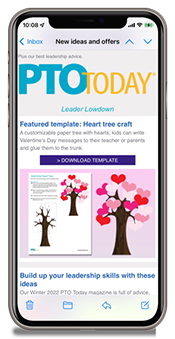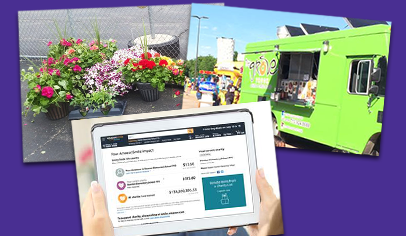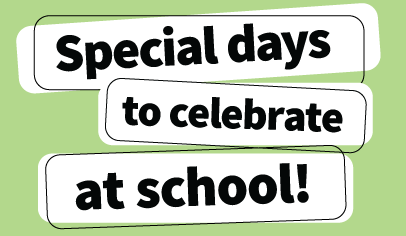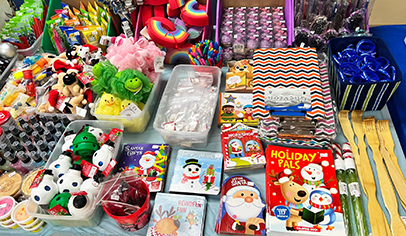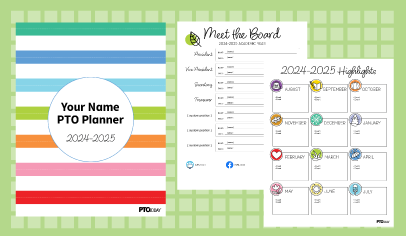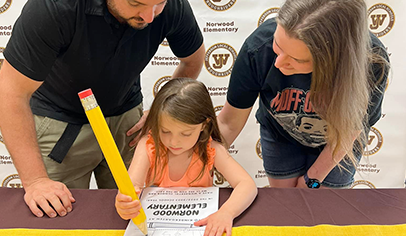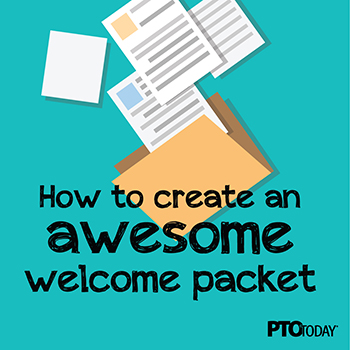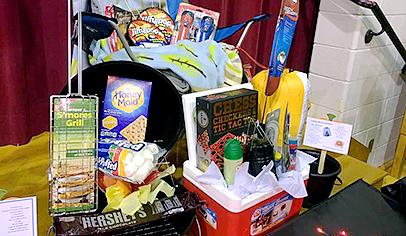Whether you’ve had some of your PTO or PTA activities covered or haven’t really thought about it, reaching out to local media outlets is a worthwhile effort that can serve several purposes:
-
Getting publicity for a fundraising event can increase attendance—and the amount of money you raise.
-
Seeing achievements in the newspaper or online shows potential volunteers that your group is active, fun, and worth covering—which can increase involvement.
-
It makes for nice reading. People like seeing positive coverage involving children, schools, and parents; they also enjoy seeing people they know in the news.
When Should You Pursue Coverage?
There are never guarantees about what makes the news. But in general, it’s worth making the effort to get coverage if your event or achievement:
-
has a feel-good factor; for instance, it involves community service, grandparents, new kindergartners, etc.
-
has good school involvement, community involvement, or both
-
has a significant impact on the school or wider community, such as a major grant received or a playground enhancement installed
-
is being held at a popular location in the community, such as a local park or movie theater
-
is special or different in some way (a weeklong science fair, for example, or a visit from a well-known author)
How To Find Media Outlets and Contact Information
If your town or city has a newspaper or news station, that’s the obvious place to start. Many areas also have local news websites, either as an arm of a larger media outlet or as an independent publication. Here are a few search suggestions.
If you don’t know which media outlets serve your area:
-
Do a web search of your city or town name and the phrase “local news” (for example: “springfield local news”).
-
Look at the websites in the search results; most likely you’ll find a “contact us” section. Often you’ll find a list of sections or departments with editors’ email addresses.
If contact information isn’t readily available:
-
Do a search of your city or town, the media outlet’s name, and a reference to local school events (for example: “springfield journal jackson elementary event”).
-
Look through the results for the most relevant and recent articles that are school- or parent group-related, then do a new search for that reporter and her contact information.
-
If these efforts don’t yield the name of a specific reporter or editor who covers school or local events, search for the newspaper or website’s general news editor or editor in chief.
What To Say When You Reach Out
Keep your communication casual and friendly, and attach a press release about your activity (see below); the information in the press release can be used as a selling point for an article, or it can be adapted for a listing in the publication’s events calendar. If you found a reporter to contact, allude to the fact that they’ve covered similar activities before.
Several weeks before your event, send an email like this:
Dear Ms. Smith,
I’m Kim Jones, PTO president at Cedar Elementary. In a few weeks, we’ll be holding our first-ever grandparents dance. I noticed you’ve reported on school events before, so we’re hoping you’re able to cover our event for the Springfield Star. If you’d prefer me to direct this inquiry to someone else, please just let me know. Attached is a press release with more information about the event. Would it be possible to include the grandparents dance in the Star’s calendar section?
We’d really love to see you there!
Sincerely,
Kim Jones
If you don’t hear back within a week or so, it’s fine to ask again, but keep it light and simple:
Hi, just wondering whether you’ve had a chance to think about attending our event on Sept. 10. I emailed you about it a few weeks ago.
If you prefer, you can follow up your initial email with a phone call.
If your event isn’t covered, don’t take it personally—and try again next time. There are many factors that go into deciding whether to cover a particular event or accomplishment.
Writing a Press Release
A press release is a way to include more information for the media. For events, it also can serve as a notice for publication in and of itself, usually in the calendar section of a newspaper or news website.
It doesn’t have to be complicated; in fact, it should be short (preferably no more than one page). Include the fundamental information but not a lot of wordy descriptions and paragraphs.
For event press releases:
-
Start with the event name, time, date, and location, in that order.
-
Always include the address of your event’s location, even if it’s at your school. Include the town, too, but you can skip the state and ZIP code unless you’re listing an address where donations can be sent.
-
If there’s a cost involved, include specific information about it.
-
When possible, also include a number for readers to call if they want more details about the event.
For all press releases:
-
Provide your name and contact information at the top left of your press release so the editor can reach you. Make a point of returning calls or emails promptly because editors have deadlines; if they don’t have the necessary information in time, they might not be able to print your notice.
-
Remember to proofread your release, and have a friend read it—better yet, ask someone from your group with editing or proofreading expertise. Make a final call to the committee or event chairperson to make sure your information (especially pricing) is correct.
Read “How To Write a Press Release” and download our sample press release template for more information.
Additional Points To Consider
Privacy issues: It’s not a necessary step, but if you confirm coverage of an event, feel free to let your school community know ahead of time. Generally, it won’t be your responsibility to deal with any privacy issues; if an attendee doesn’t want to talk to a reporter (which is rarely the case at family events), they’ll simply decline. And the reporter or photographer themselves will seek formal permission for any photos taken.
Photo permissions: If your event is covered, spread the word about the article or TV segment however you can—on your Facebook page, in your newsletter, and through other communication channels. It’s a coup for your school community and reinforces the message that you have an active group that’s doing interesting things.
If you share a link for a story for which you provided photos to the media outlet, you can continue to use those photos any way you like. But if the media outlet took its own photos, it owns the rights to those photos. Don’t download and paste these photos into your newsletter or emails—you need to get permission from the media outlet before you use them.
